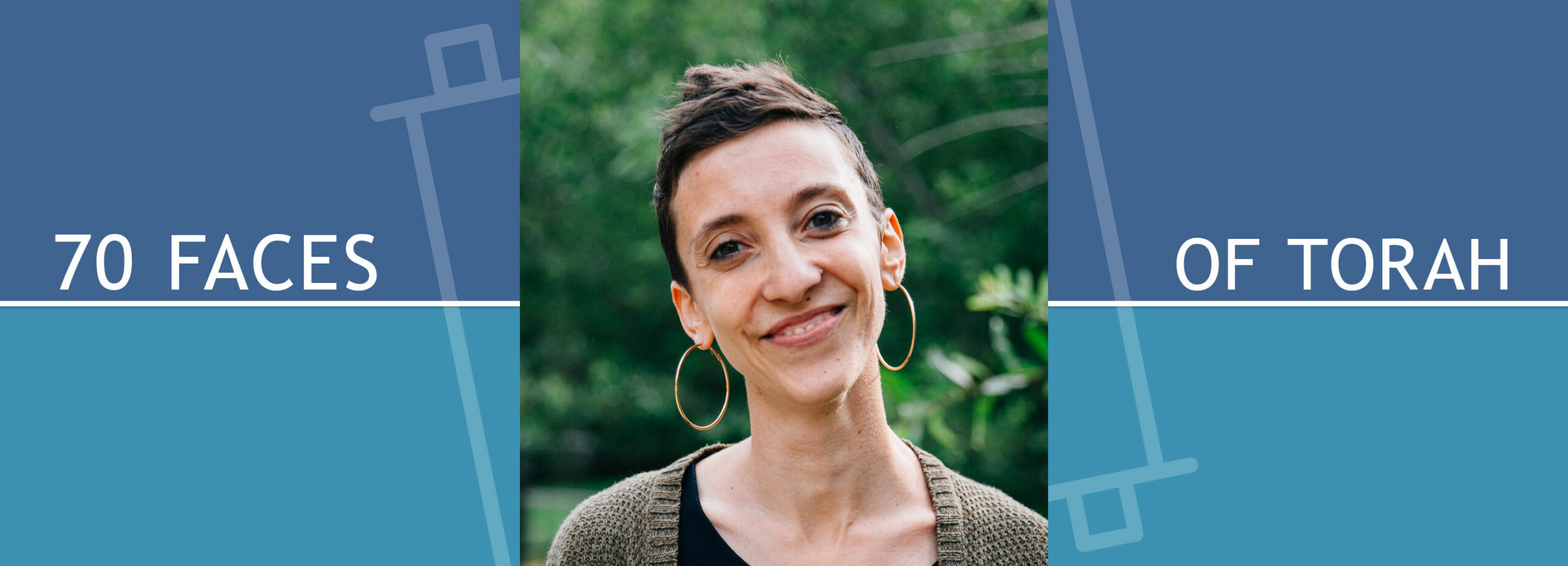Leviticus Calling Out and Coming Close

Parshat Vayikra (Leviticus 1:1-5:26)
In Hebrew, the book of Leviticus is named for its opening word, “vayikra,” meaning “and he called.” Here God calls out to Moses, transmitting a set of instructions for what will be the sacrificial system of the Temple. In Vayikra’s second verse, God begins to unfold this intricate system, which will occupy the length of an entire book of Torah: “Adam ki yakriv mikem korban/when a person brings an offering…”
As a poet who often reads Torah as the craft of verse, I can’t help but hear the phonetics of God’s opening call: Ki yakriv mikem korban, the hard K sounds stringing these words together, clanging out a percussive sequence that is both satisfying and slightly discordant— an indicator to pay attention.
The phonetic linking of “vayikra” “yakriv” and “korban” immediately sparks an association with another verse—“Karov Hashem l’chol korav…God is near to all who call Her”—from Psalm 146, spoken each day as the Ashrei prayer. In this verse of Ashrei, we see working together the same two three-letter roots as we saw in the opening lines of Leviticus: kuf-resh-aleph for “vayikra” and “korav,” and kuf-resh-bet for “korban,” “yakriv” and “karov.”
Though linked by words and sounds, these two verses deliver distinct messages. In the book of Vayikra, it is God who calls out. Once Moses and the people are listening, God details the system of korbanot, from our second root that means both “offering/sacrifice” and “to come close” in biblical Hebrew. Through God’s call, the Israelites receive instruction for actions and rites that will bring them closer into worship and connection with the Divine. In contrast, the verse from Ashrei reverses the direction of these actions. There, God draws close to all who call out; we are the ones doing the calling, and God is the one who draws near.
Although upon a first read, the book of Vayikra might appear as a litany of dry and technical instructions for establishing the cultic sacrificial system, the appearance of these two words in its opening verses suggests otherwise. To call out and to draw close are acts of intimacy. They are two of the most basic ways in which human beings reach for relationship. When we are distanced from those we love, we can either call them towards us, or draw closer ourselves in order to bridge the divide. By bringing Vaykira and Ashrei together, we see that these acts can move multilaterally, in both directions between ourselves and God: Sometimes, God reaches and calls for us, sometimes we reach and call for God.
What does this drawing closer look like? In his philosophical work Guide for the Perplexed, Maimonides comments on our verse from Ashrei and other places where the root kuf-resh-bet appear, clarifying that drawing close to God “intimate[s] a spiritual approach, i.e., the attainment of some knowledge, not, however approach in space” (Part 1, 18:3). Advancing the idea that our intimacy with God does not occur in a physically actualized way, the 20th-century theologian Rabbi Abraham Joshua Heschel writes: “We cannot make God visible to us, but we can make ourselves visible to God. So we open our thoughts to God. The purpose of prayer is to be brought to God’s attention, to be listened to, to be understood by God; not to know God, but to be known to God.” (Moral Grandeur and Spiritual Audacity)
For Maimonides, closeness to God is about attaining spiritual knowledge. When our minds are more clearly and sharply attuned to an awareness of the Divine, we achieve intimacy with the Divine. For Heschel, God may not be visible, but intimacy allows us to become visible in our seeking. Here, he differs from Maimonides, emphasizing not how we come closer to understanding or experiencing God, but rather how we make ourselves available to be experienced by the Divine. Again, here through a juxtaposition of a medieval and a modern theologian, we can see that the interplay between ourselves and God is dynamic, each party at times leaning toward the other, seeing the other party more clearly, making more space for the experience of the other.
The art of intimacy contains deep mystery, as well as carefully determined actions. Sometimes we need to do concrete things, such as give certain gifts, offer time, or say specific words to our loved ones. Sometimes all we can do is cry out or lean closer. In our Torah, we see the specificity of Vayikra to provide mechanisms of intimacy with God— steps that must be taken, acts that must be performed. And we see the openness of Ashrei, which declares that there is intimacy in our yearning and calling for God.
Writing into the mystery of our relationship to the Source of All Life, poet James Bertolino said:
I want to open myself to everything
and pour myself
into the world, but am unable.
So I drip what I’ve become
through the wingbone of a loon.
Only then do I hear the calling
that mends my heart, that forgives
my distance
May our journey into the book of Vayikra this year teach us more about the path of closeness and relationships, with God, with each other, and with the world into which we long to pour ourselves.
Mónica Gomery is in her final year at the Hebrew College Rabbinical School. Her interests include poetry, communal singing, Talmud study, pastoral care, and racial/economic/gender justice. She currently works as a prison chaplain, teaches Talmud at the Boston Workmen’s Circle, and helps run the Boston Teen Beit Midrash.
Interested in a possible career in the rabbinate? Read Rabbi Dan Judson’s article “Jewish Lessons on Meaningful Work.“ Rabbi Judson teaches history, oversees the professional development program, and serves as the placement director for the Hebrew College Rabbinical School. He has a PhD in Jewish history from Brandeis University.

